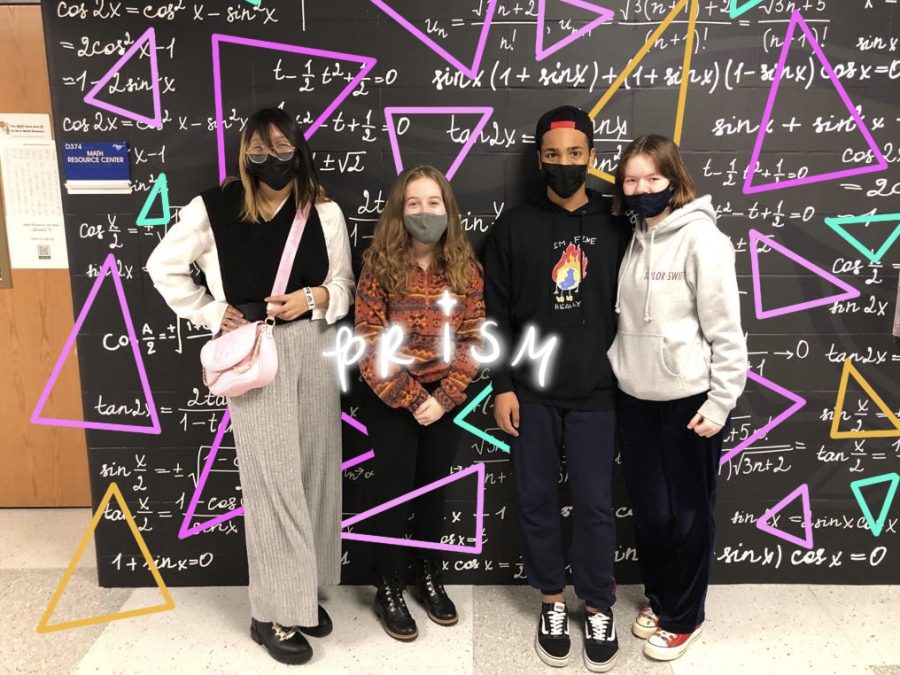Discourse over LGBTQ+ labels
One aspect of this debate is the significance of labels when it comes to sexuality and gender within the LGBTQ+ community.
Labels are often relied on in society to provide comfort and to help put things into categories so that we can keep track of them. Imagine the chaos one would face if they went to the library to find one specific book, and then had to search through the entire catalog because there was no organization. However, when it comes to labels on a person’s identity, some find them empowering, while others find them restrictive and damaging.
One aspect of this debate is the significance of labels when it comes to sexuality and gender. Some people who identify as LGBTQ+ believe that labels help them form a stronger relationship with others, and find other people who are similar to them. Others believe that labeling sexuality or gender puts themselves and others into a box and leaves them with no room to grow and develop.
Freshman Alexander Villarreal believes that labels can help people understand themselves better, and also help older and younger members of society understand the LGBTQ+ community.
“I feel like they can help people on the older side and the younger side in multiple ways. They can also help a person understand how other people think about the world, and how other people think about themselves, and how they feel about themselves,” Villarreal said.
On the other hand, senior Angel Vaughn explained not having much of a preference for using or not using labels, but detailed how it may be more important to certain members of the LGBTQ+ community such as those who identify as transgender. Additionally, Vaughn passionately described a lack of respect for those who don’t honor others’ preferred pronouns and sexualities.
“If I had a different gender preference, I’d probably mind more. I feel like people who are trans feel more strongly. A lot of people can’t accept [others’ identities] and I feel like that’s very dumb and disrespectful,” Vaughn said.
Math teacher Andrew Kaim is the sponsor of DGS’s LGBTQ+ gender and sexuality alliance, PRISM. PRISM is a space for students to share their concerns about LGBTQ+ issues and encourages social connections within the school community. Kaim shared a teacher’s perspective on trying to be as respectful as possible of student’s identities in the classroom.
“I’m not a big label person in general- especially being a teacher, and there are some preferred pronouns going around, I’d rather just say they or them if I’m not sure… Even though I’m a math person, I know there are things that either spread between more than one category, or can’t be put into a category,” Kaim said.
While some LGBTQ+ members do prefer to categorize themselves, others believe that there is toxicity when it comes to putting yourself into a box. Sophomore Milo Wiggins believes that there are downsides to labels, but that there are ways to make labels less of a big deal and to have a healthy relationship with how one views themself.
“I think it can definitely be harmful depending on how you view it, but as long as we, as a community, are more open to these things being fluid and changing, then there’s more leeway. You don’t have to label yourself so early if you aren’t sure, or just be okay with the fact that these things change, and sometimes you’re not always right on the first try,” Wiggins said.
Even though some believe that there are positives and negatives to labeling oneself and others, freshman Natalia Restrepo detailed how they believe that labels can only be detrimental. They detailed how labeling sexuality and gender can prevent growth, and stop self discovery.
“I feel like even though people use labels as comfort, and I’ve done the same, you can push yourself into a box and not feel like you can get out of there, which can be really confining and stressful. When people already establish you as this label, and in their mind they think of you as that, it can be really hard to change,” Restrepo said.
Although there is a range of opinions regarding the importance surrounding categorization for members of the LGBTQ+ community, many students stressed the importance of choice when it comes to their self expression, and deciding what works best for them.
“For me personally, I think you can choose to use them, or you can not use them. It’s really a matter of what makes you feel most represented,” Wiggins said.
Restrepo agreed with Wiggins’s sentiment, and added that identity can be whatever one wants, especially in current times.
“Even though I use labels, if people don’t, I don’t care. You can be whatever you want to be- it’s 2022,” Restrepo said.


